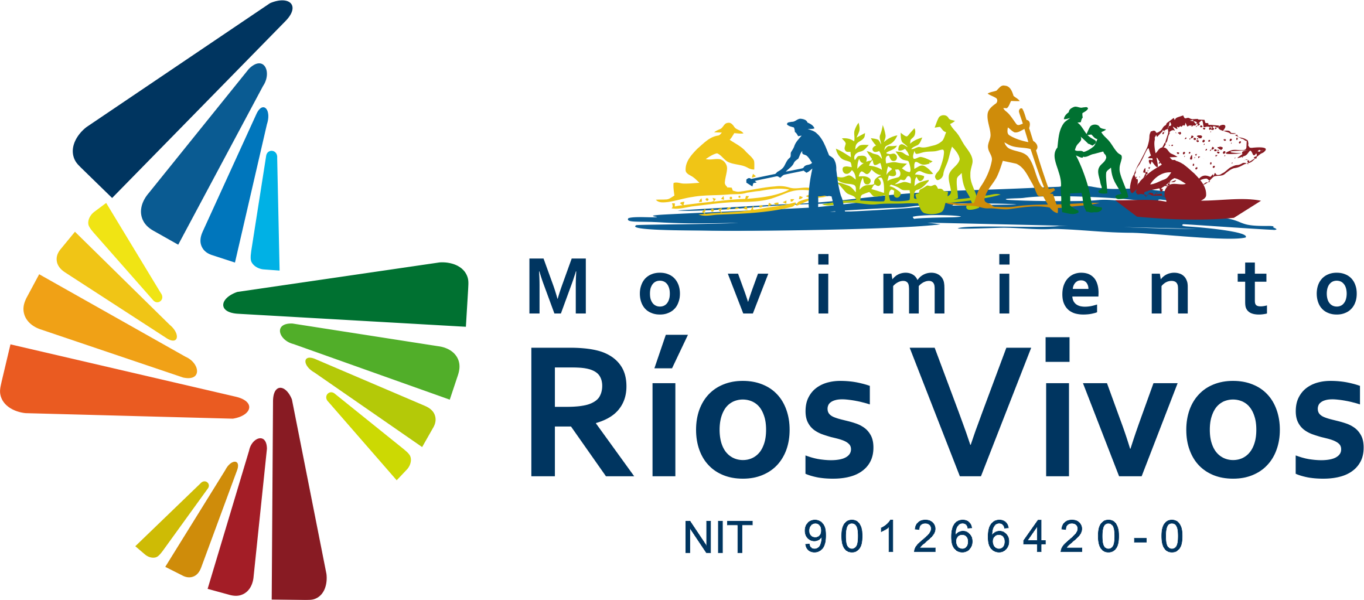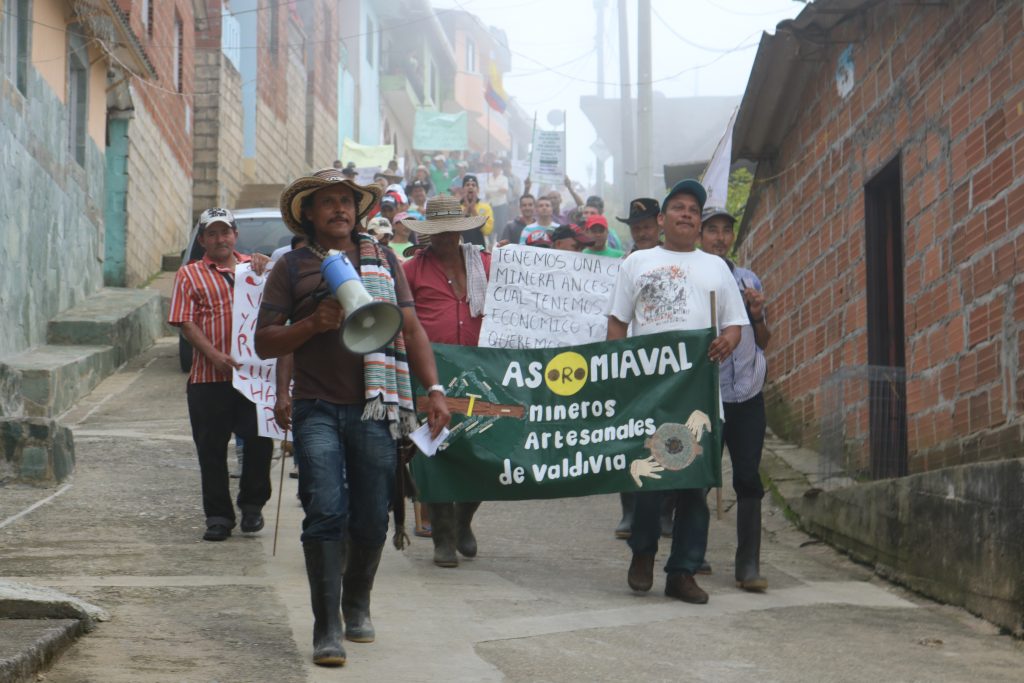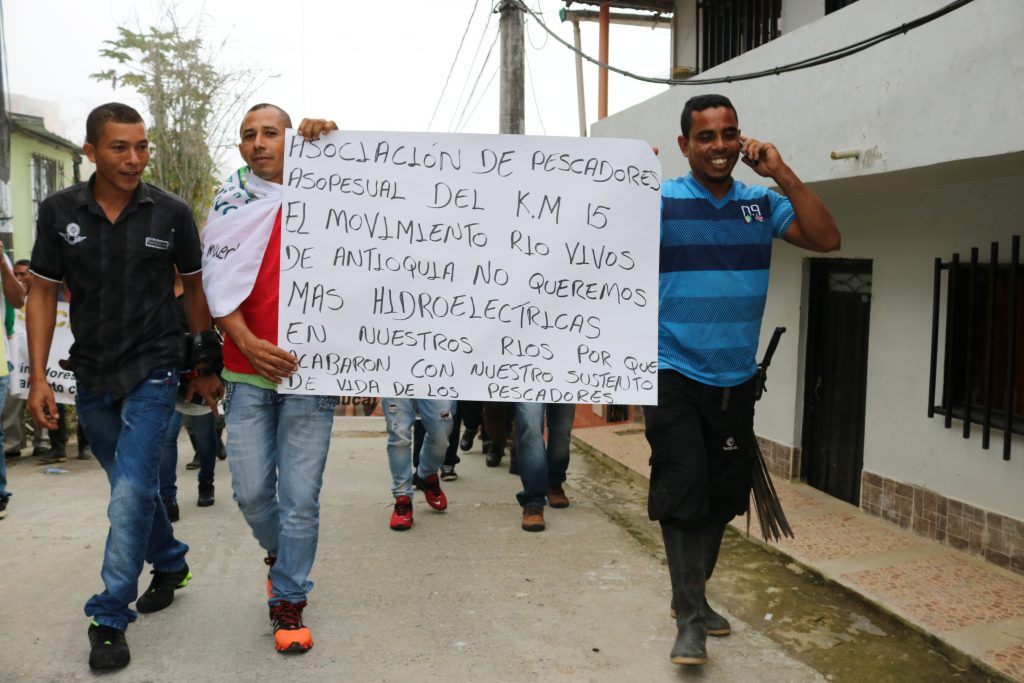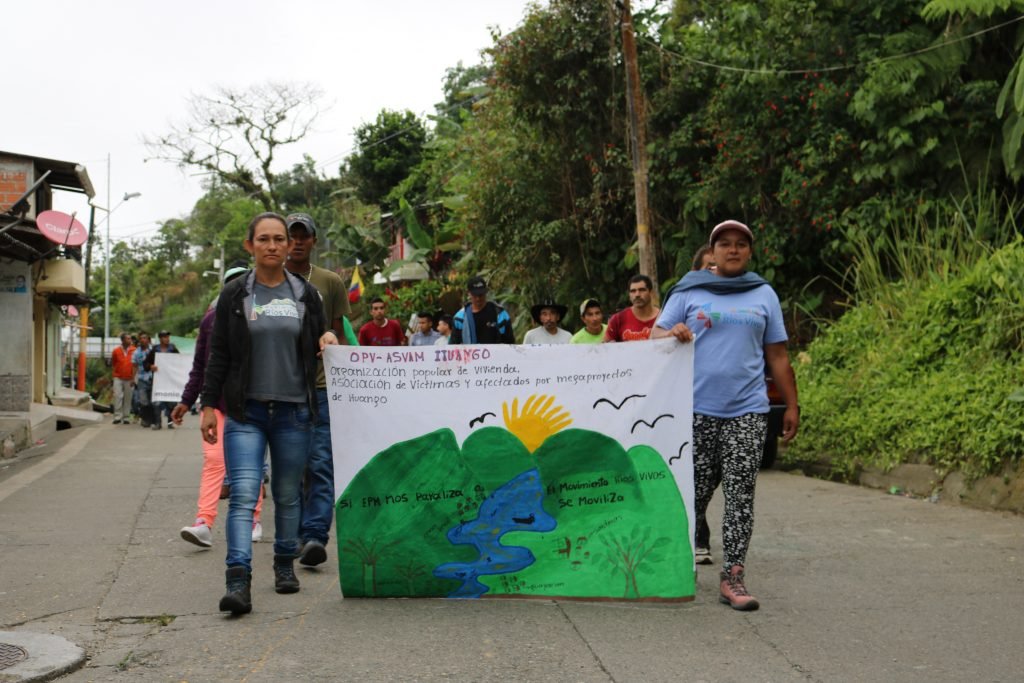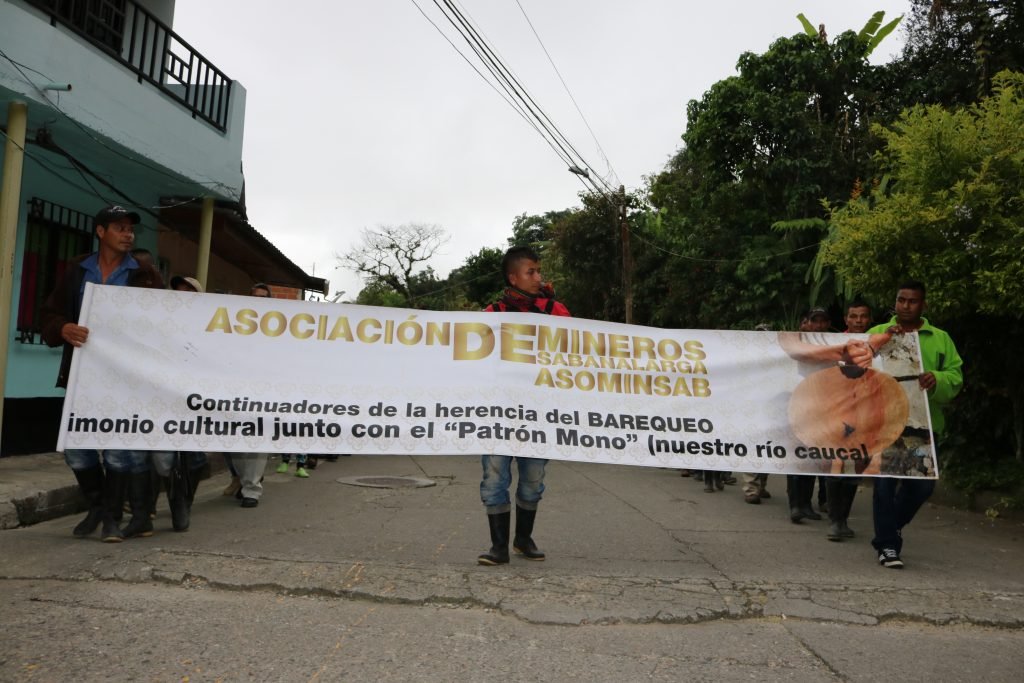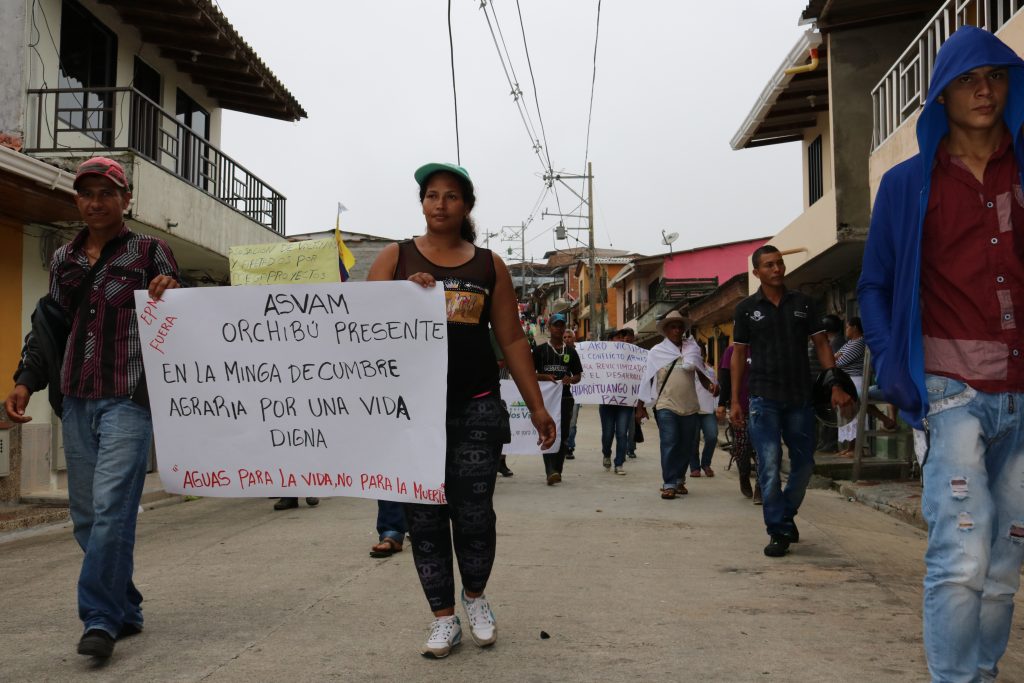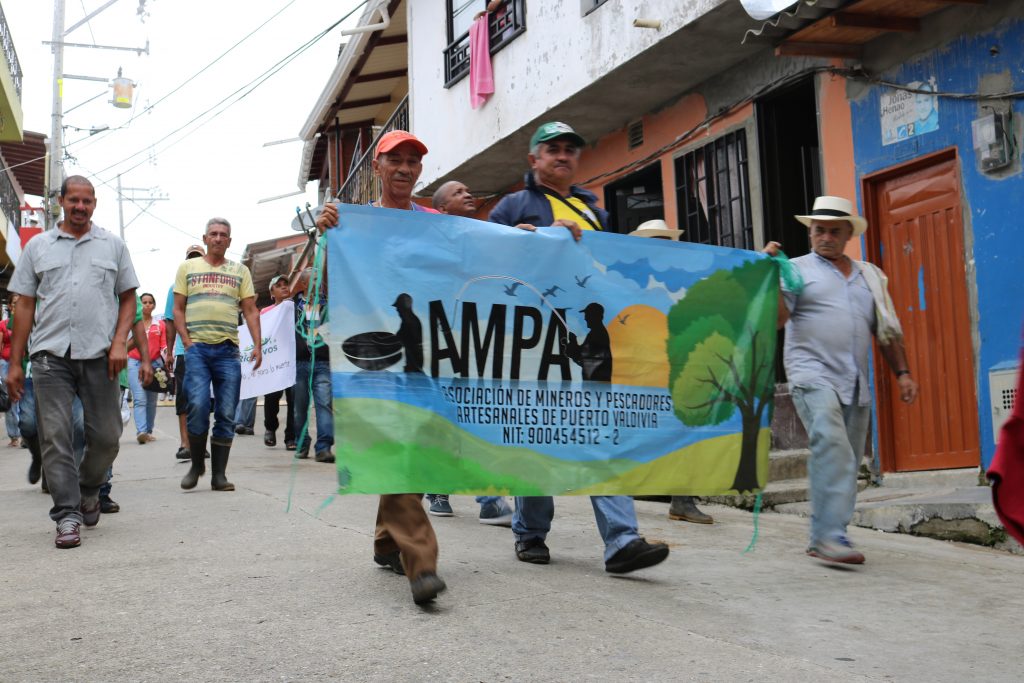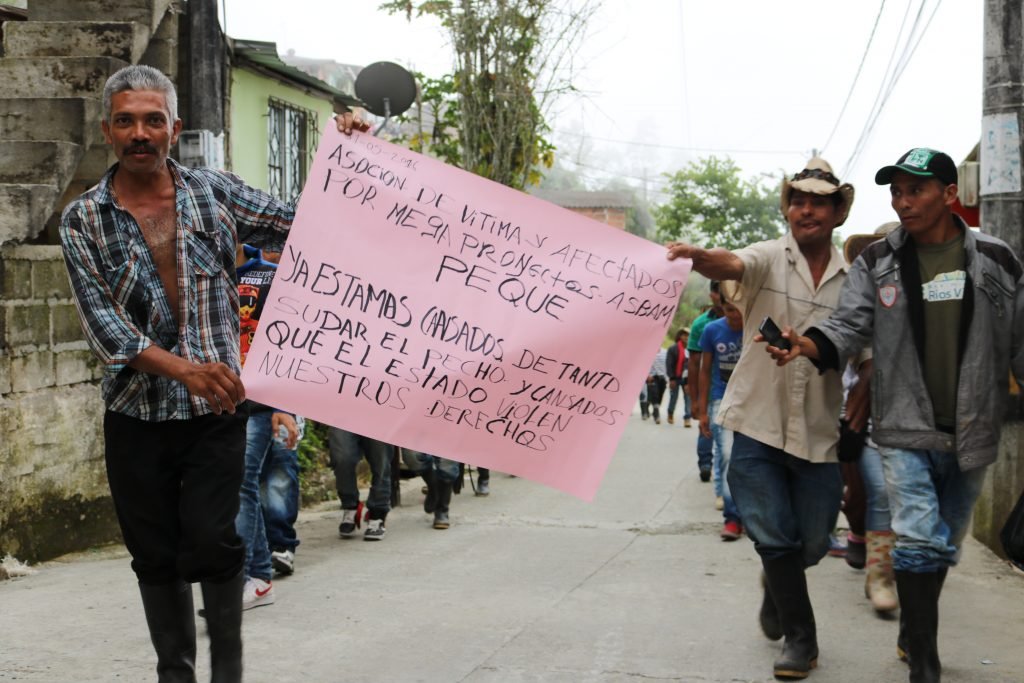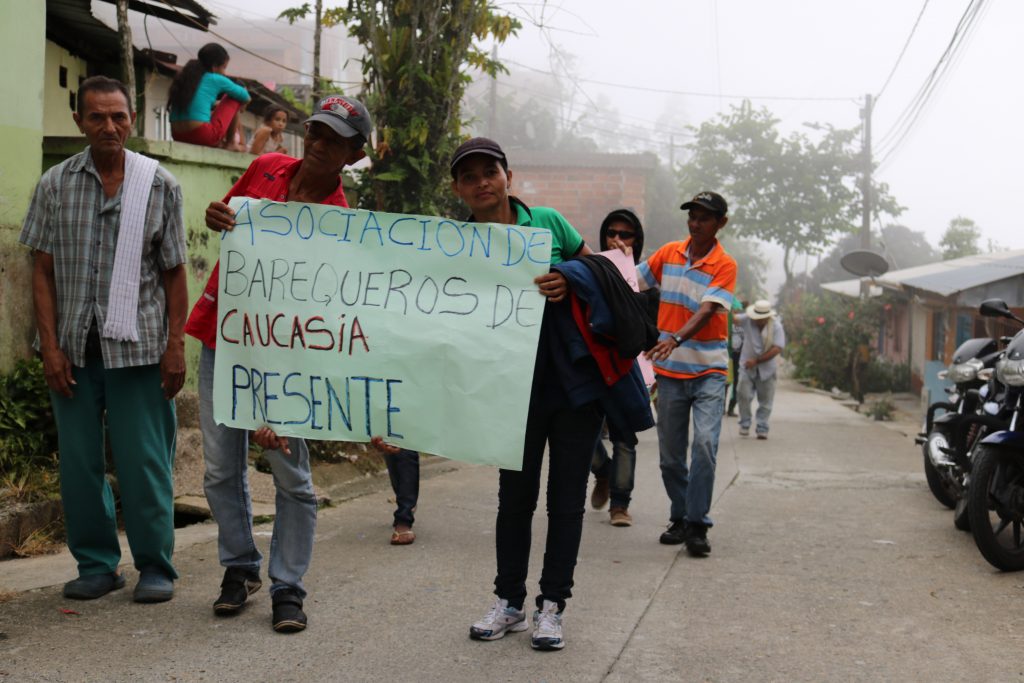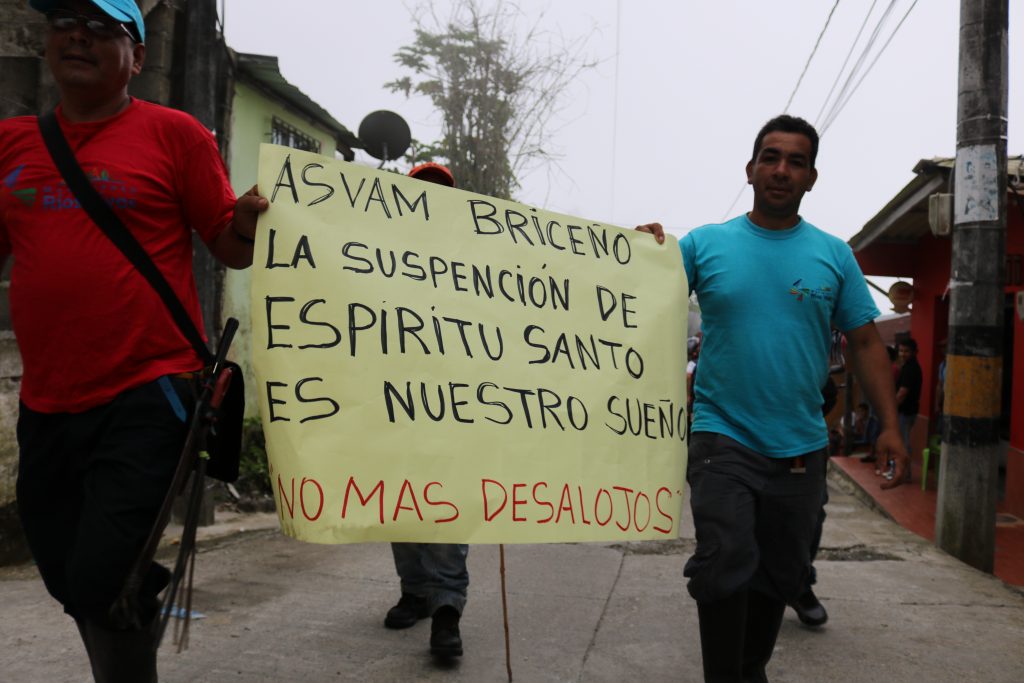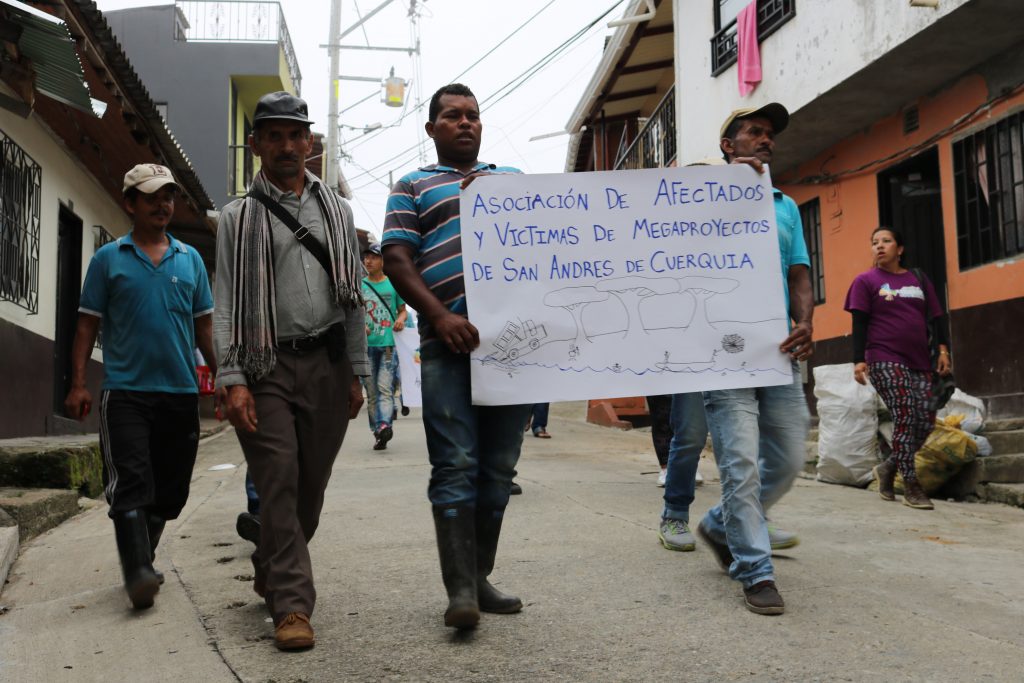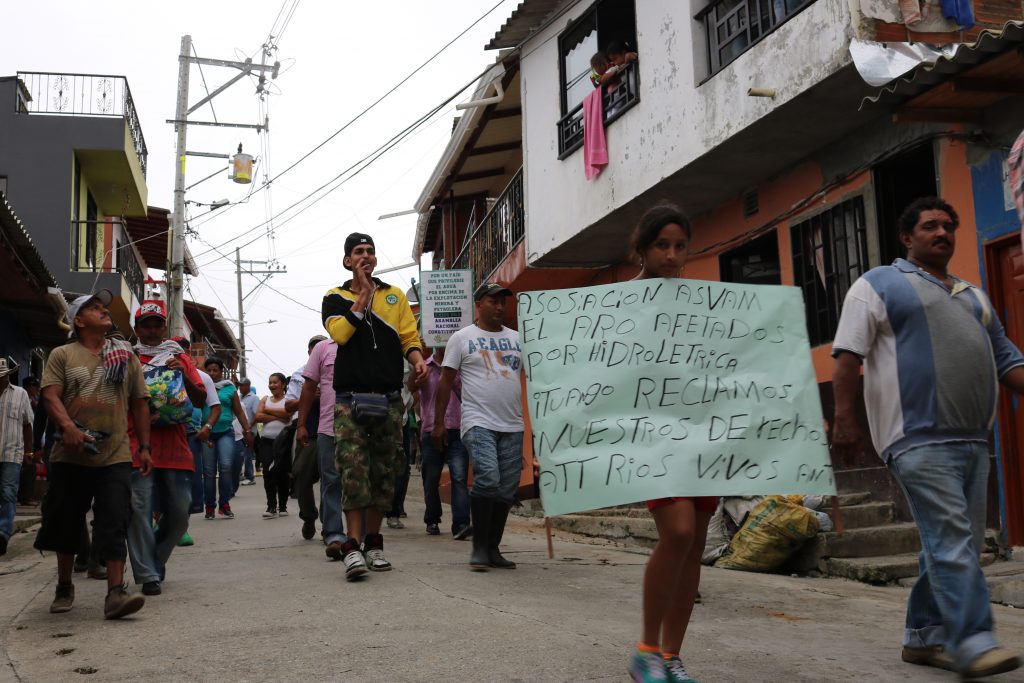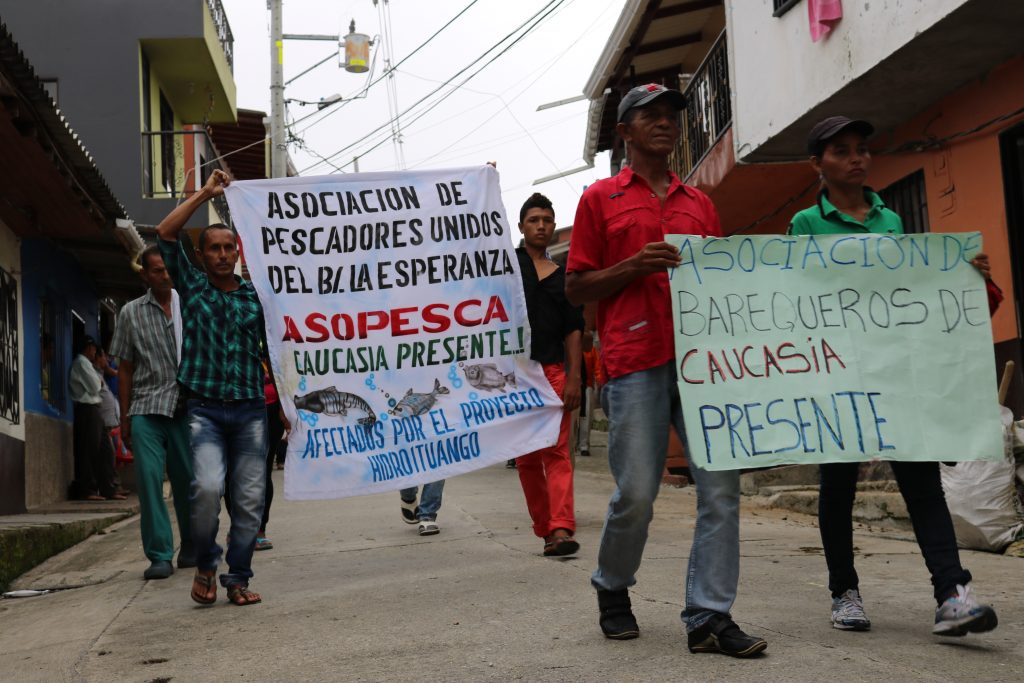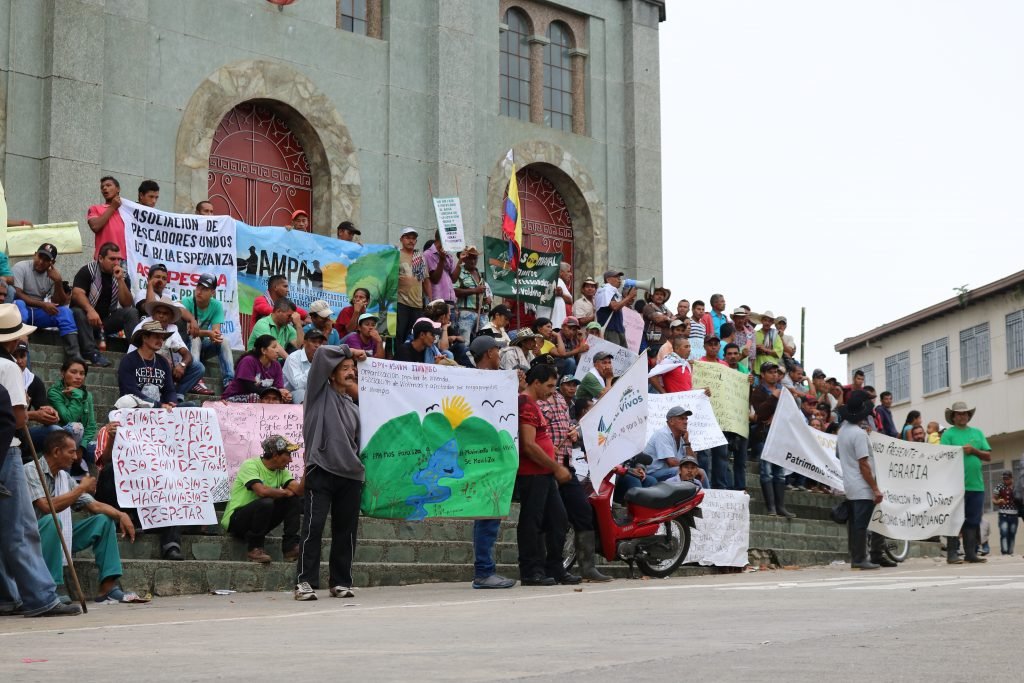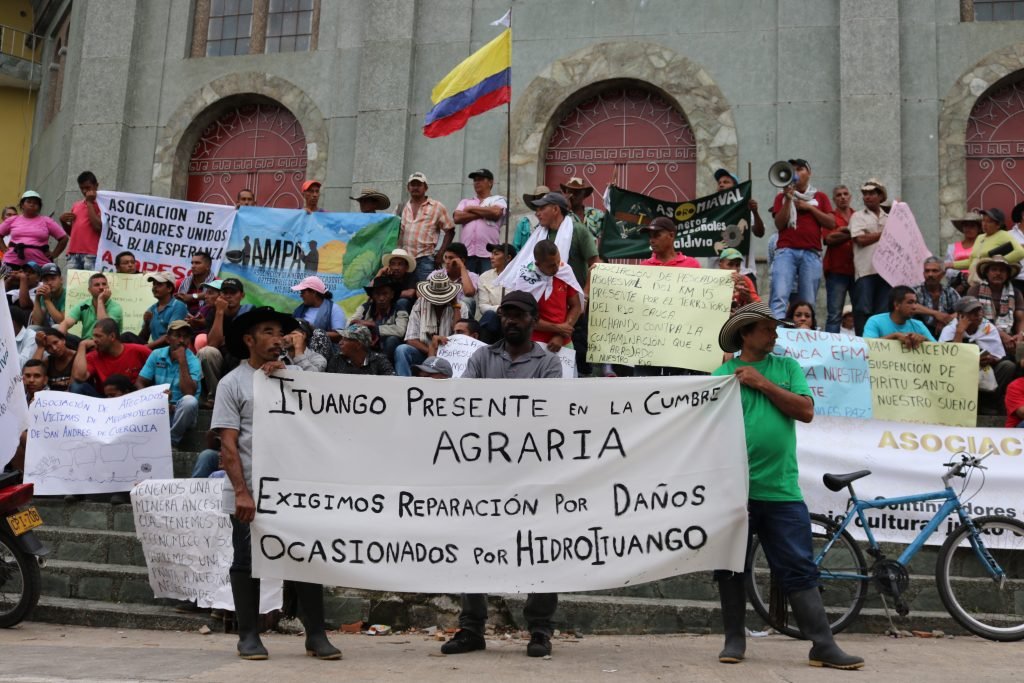Ríos Vivos is a network of grassroot organizations from the different subregions of the west, north and down areas of the Cauca River in the department of Antioquia (Colombia). The organisations which currently belong to the network identify themselves as affected by the dam Hidroituango, as well as threatened by the all-encompassing projects linked to it such as dozens of power generation micro plants, power transmission lines and mega-mining projects in the area, mainly owned by the Continental Gold.
The families of artisan fishers, artisan miners, muleteers, peasants, cookers, housewives and traders, among other groups, have created associations, which in most cases have been named ‘the associations of victims and people affected by megaprojects’ (ASVAM by its acronym in Spanish). This is because these families share the double condition of victims of the internal armed conflict that has taken place in the region for xxx years and victims of mining and hydroelectric mega development projects. Alongside these associations, there are others that belong to the network, mostly groups of women and young people.
Fifteen grass root organizations are members of Rios Vivos: ASVAM Ituango, ASVAM El Aro, ASVAM Toledo, ASVAM San Andrés, ASVAM ORCHIBU, ASVAM Briceño, Association of Artisan Miners of Sabanalarga (ASOMINSAB), Association of Artisan Miners and Artisan Fishers of Puerto Valdivia (AMPA), Association of Artisan Miners of Valdivia (ASOMIAVAL), ASVAM Valdivia, Association of Fishers of kilometer 14 y 15 (BOCACHICOS), Association of Artisan Miners of the Low Cauca River (ABC), Association of United Fishers of La Esperanza Neighborhood (ASOPESCA), Group of Young Defenders of Water from Ituango and the Association of Female Defenders of Water and Life (AMARU).
Our main objectives are:
-
To continue living in our territories. This involves finding solutions to the current crisis and designing strategies for each community to remain in their territory in dignity and under the strong of human and constitutional rights.
-
To defend our territories as vital spaces where civil and political rights as well as social, economic, cultural and environmental rights are satisfied. We emphasize the protection of environmental rights, that is why we call ourselves an environmental movement.
-
To transform the national mining and energy sector public policy, which we conceive as one of the main causes of the displacement to which rural populations have been subjected recently.
